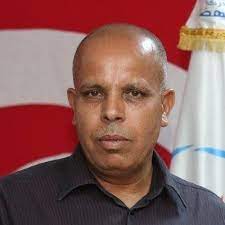The political crisis in Tunisia is ongoing, although time is not in the country’s favour, in particular as the healthcare situation dwindles due to the spread of the coronavirus and the rising number of daily fatalities, in addition to the pandemic’s economic and social repercussions, and the risks of financial collapse.
In recent months, the country appeared stuck in a helpless situation, as there a numerous elements to the crisis including state institutions, political circles, and civil society, on the one hand, and between political, economic, social, and health sectors on the other. Each may cause an explosion that can have devastating consequences.
The president’s attempt to hinder the government’s work, in a blatant contrast to the purpose of electing him and the principles he swore to respect, show no signs of being rectified.
On the other hand, the government performance has not been up to the challenges required at this phase, despite the support and encouragement it has received from parliament. This is mainly due to the absence of a vision and a plan, and the lack of leadership capacity and courage in decision making.
OPINION: A deputy president of Ennahda is the most popular political figure in Tunisia
It is also a result of the president’s obstruction of government activities, the disharmony in the cabinet policy, and the accumulation of failures from the decade of the revolution, particularly in the economic and social fields, and at the level of the relations with social partners.
Parliament is still being targeted by the remnants of the eradicative left wing of the Democratic Constitutional Rally (RCD) and its regional and international supporters, through defamation, disruption and threats of dissolution.
The main target behind all this is the status of parliament in the system of governance, which has dismantled all paths of potential return to authoritarianism, unilateralism and the one leader system under the umbrella of the presidential system.
The latest situation is the strongest proof of the need to resort to a referendum in order to transform the current mixed political system into a full-fledged parliamentary system, with a focus on developing democracy by supporting party building and changing the voting system.
Regarding the system of governance, the mistakes committed by the first Parliament members, who were elected directly after the revolution, must be reviewed and reformed. Even though these weaknesses are justified by an obsession to avoid a return to tyranny, the situation cannot justify the lack of awareness that led to the abandonment of a set of mechanisms necessary to maintaining democracy in case of a total political impasse.
The political system that emerged from the results of the 2019 election, which has been characterised by weakness, has proved its inability to respond to the challenges of this phase.
The incompetence of the 2019 political system has opened the door to betting on the overthrow of democracy and a return to the presidential and tyrannical system, and paved the way, at a minimum, for the illusions of selective and exclusionary democracy (a democracy without Islamists), in addition to the quarrels, altercations and intensifying marginal disputes with no regard for the interests and expectations of the citizens and the values of coexistence and acceptance of the other.
The country now needs a clear vision within the framework of a democracy to achieve development and economic prosperity and prevent the process of the gradual collapse of the state and society so as to avoid chaos and complete failure. This would be possible by adopting the following two mechanisms:
The first mechanism consists of adopting a strategic consensus similar to the 2013 accord by launching a national political dialogue under the umbrella of the three trade unions and with the participation of all parliamentary and non-parliamentary parties and the presidency within a period not exceeding six months.
At the beginning of its work, the aforementioned mechanism is required to set an agenda in terms of reforming the system of governance, amending the electoral law, especially the voting system, the formation of the Constitutional Court, and stopping the president from interfering with the functionality of government and the affairs of the state.
READ: Tunisia’s Ennahda calls for forming government to confront crises
The second mechanism is centred on resorting to the people who are the original source of sovereignty and can be utilised as a path through which legitimacy can be renewed and balances can be changed to achieve the stability and harmony of state institutions.
This approach offers a package of solutions that take into account all the elements of the current political equation that includes the president’s disruption of the ruling system, the government’s weakness, the parliament’s dispersion and exposure to recurrent attacks, the vulnerability and conflict among political parties, the necessity of a social truce, and the role of national organisations to hasten the execution of a rescue plan to recover the health and financial fields, within a democratic framework and on the basis of a vision that affirms the ability of Tunisians from all sides to correct the course of the situation through dialogue and get out of the crisis before falling off the edge.
Will the health crisis and its negative repercussions push the Tunisian political class to overcome its struggle, pool its efforts in confronting the pandemic and sit at the dialogue table?
This article first appeared in Arabic in Arabi21 on 12 July 2021
The views expressed in this article belong to the author and do not necessarily reflect the editorial policy of Middle East Monitor.

![A Tunisian youth who was injured during the revolution shouts anti-government slogans during a sit in on January 14, 2021, in the capital Tunis [FETHI BELAID/AFP via Getty Images]](https://i0.wp.com/www.middleeastmonitor.com/wp-content/uploads/2021/07/GettyImages-1230580960-scaled-e1626103757941.jpg?fit=920%2C612&ssl=1)







